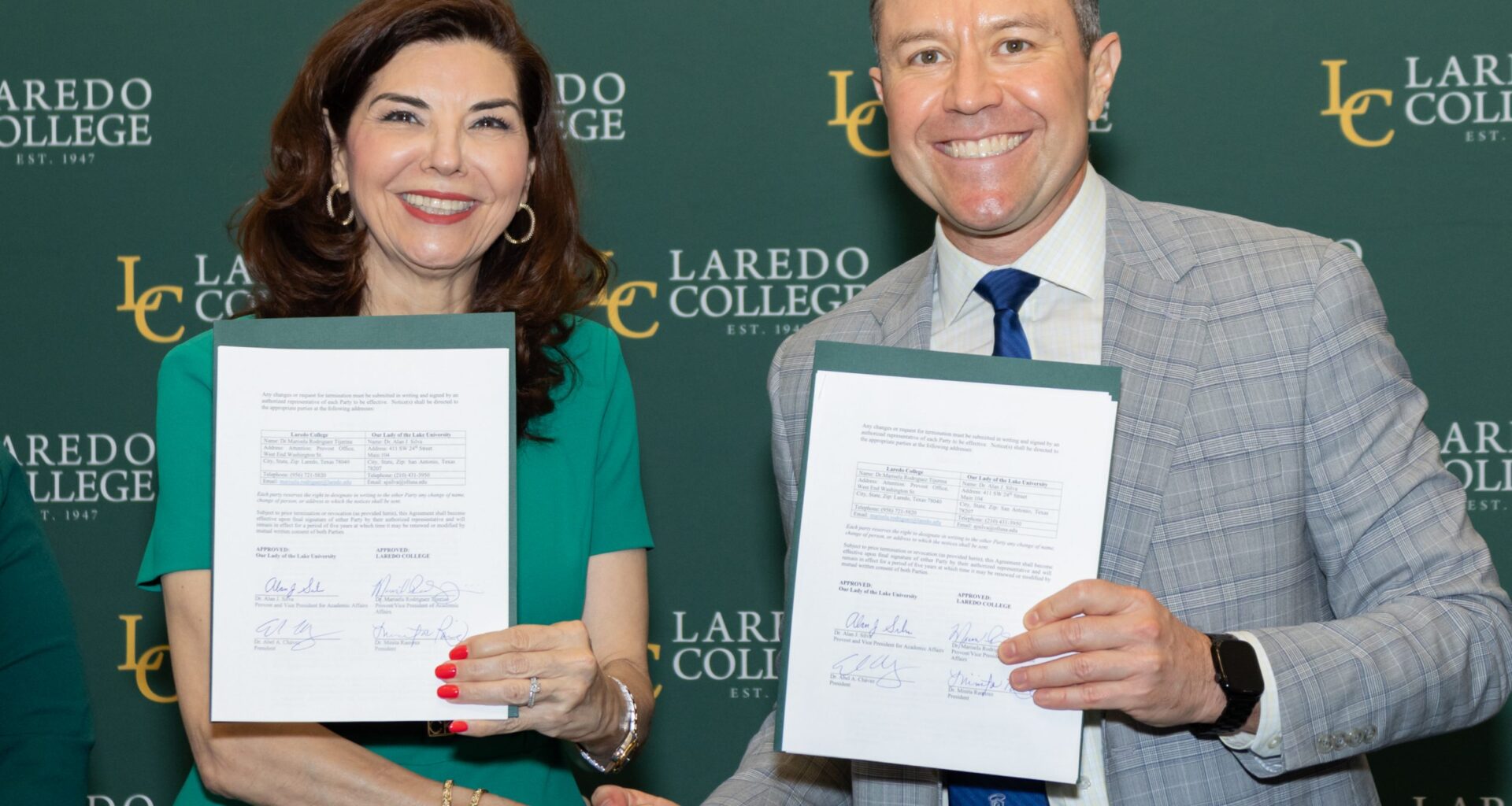A new agreement between Our Lady of the Lake University and Laredo College aims to provide a new, easier pathway for first-generation and underserved students seeking to transition from the college to the four-year institution.
“This agreement is … a shared declaration of purpose,” OLLU President Abel A. Chávez said in a news release. “Together, Laredo College and OLLU are clearing pathways, removing barriers, and accelerating access to four-year degrees for students who will go on to lead, serve, and transform our communities of San Antonio, South Texas, and beyond.”
Officials from both institutions worked to ensure that interested students could seamlessly transfer their credits from Laredo College to OLLU, and developed an automatic admissions process that includes credit evaluations and personalized advising support.
Chávez and Laredo College President Minita Ramírez signed the agreement on June 26 and it became effective immediately. The goal this fall is to have at least 10 students transfer into any of the bachelor degree programs offered at OLLU.
“This partnership with Our Lady of the Lake University will open more doors for our students that will lead them to become great leaders in our communities, throughout the South Texas region, and the nation,” Ramírez said in a statement.
The two institutions, which sit nearly 160 miles apart, serve majority Hispanic, or Latino, student populations and both earned the designation of Hispanic Serving Institution.
Last fall OLLU reported having 1,968 students with 61.5% of them identifying as Latino or Hispanic. At Laredo College, 95% of its 10,434 students identify that way.
About 48% of all Laredo College students are also considered economically disadvantaged, which for undergraduate college students this means they qualified for Pell Grants at any point before graduation.
According to data reported by the U.S. Department of Education, OLLU’s graduation rates are higher, at 55%, for students who transferred in from other colleges than those who started at the university, at 37%.
Officials said the partnership is designated to serve first-generation and underrepresented students by addressing some of the most common hurdles when transferring to a four-year college, including credit loss, financial limitations, and lack of advising.
“When we empower our students and remove obstacles, we also clear a route to graduation and their dream career,” Ramírez said.
